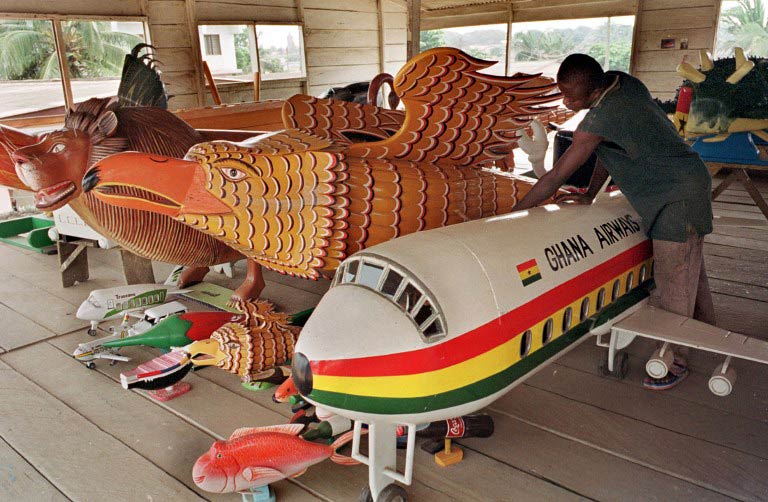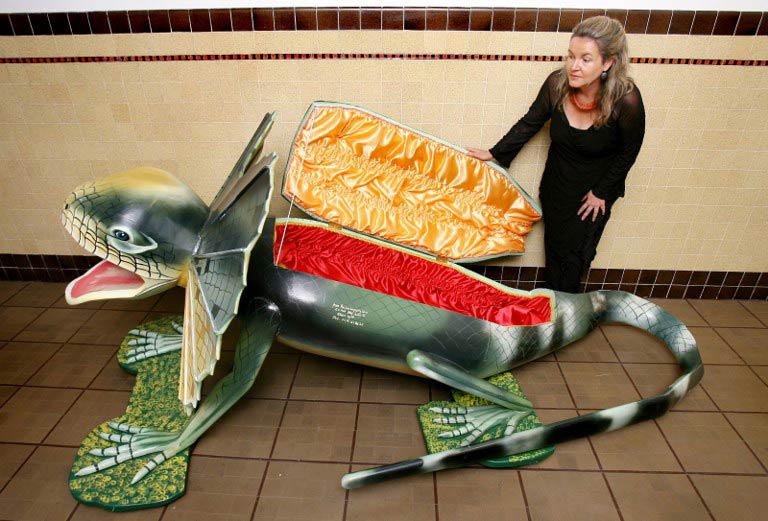I’m the biggest I have been in five years, almost back full circle to the size I was six years ago. I managed to drop from a UK size 16 to a UK size 12 but now all my size 14 clothes fit a little too snugly. I suspect I’m right back to being a size 16 but I can’t be sure because I haven’t bought any new clothes. I’ve merely stopped wearing the clothes that feel too tight and choose only those items that were once loose on my body.
It’s horrible being overweight in Ghana. Everybody will readily tell you how obolo (fat) you’ve become. Aunties will screech, “Ei. W pai o!” (You’re bursting at the seams!) even though they themselves are spilling over their kaftans and are probably twice your size. Once when I was working out with the office trainer, my manager exclaimed, “Ei Nana. Look how fat the back of your neck has become.” “That’s why I’m working out,” I muttered under my breath. She had the nerve to comment on my body when she’s at least a size and a half bigger than I am. Maybe it’s because she has children – women with children get a pass, I think. But from what my friends with children say, that pass doesn’t last very long.
Many years ago, before the white man came to the Gold Coast, it was a good thing to be fat. Fat women were treasured. Being fat was a sign of prosperity and wealth. Times have indeed changed. The last time I visited my farming village, Kwadarko, in the eastern region of Ghana, one of the women who lives in the community said to me, “Ei. You have become fat. She must’ve seen the reaction on my face because she swiftly added, “But it really suits you.” So even in a small farming village of less than 100 people, 50% of whom I’m related to, it’s not a good thing to be big.
I’ve always had issues with my weight. I was a skinny child, mainly due to the asthma that frequently racked my body. In secondary school I developed breasts really quickly and generally felt uncomfortable with my body. In sixth form, my friend Lauren and I would wake up early, jog around the football field, and do countless sit-ups in an effort to control our weight. When I look back at photos from that time I realise how “normal” my body was. I definitely wasn’t overweight as a child or teenager.
The weight gain happened in my early adult years when I moved from Ghana to London. I was initially unhappy there, living with relatives but not really feeling at home. I got a job at Pizza Hut, and was entitled to a free meal every shift I worked. Another perk was a 50% staff discount on products sold by Pizza Hut, including Häagen-Dazs ice cream. That was when I began to gain weight. Food became my emotional crutch. When I eventually rented a flat with a friend, I had crept from a size 10 to a size 12. She was a size 8 and proud of her body, perhaps too proud. She’d walk around our flat naked and tease me about my weight gain. We stopped doing the weekly grocery shopping together after she complained, “You’re eating us out of house and home.”

Years later, I got married to a (slim) man. He was one of those people who sometimes forgets to eat but I have never forgotten a meal in my life. When we began having problems in our marriage, he kept losing weight and I kept gaining it. I remember him saying, “You don’t even care. Look how much weight you’re gaining while I keep getting skinnier.” The fact that he is now my ex-husband has nothing to do with the different ways in which we dealt with emotional issues.
The worst bit about my weight battle is that I know being fat is a feminist issue. I recognise that women are fed images of ultra-skinny models, actresses and other unattainable ideals via television screens, magazines and billboards. I know that I am not as fat as I feel. When I was at my skinniest I didn’t automatically feel happy, even though I had assumed that being able to buy size 10 clothes would have brought me automatic joy.
I know the roots of my over-eating are emotional. When I’m happy, I celebrate with a posh dinner with a friend. When I’m down, I take refuge in a large bar of chocolate. I recognise that I should drink water, eat almonds instead of chocolate, drink less wine. I start diets all the time and I’m sick of them. Why can’t I be one of the metabolically blessed who can indulge as much as they want without picking up weight? I watch my skinny friends when we go out for meals. The break off half a roll from the bread basket; I keep dipping into it. They order baked fish with a side of veggies; I choose the rich grouper provençal (fish in creamy sauce). I know I should but I just can’t seem to imitate them.
Surely I’m not the only woman who feels this way; who hates being called fat; who worries, perhaps unnecessarily, about what the scale tells her. I’m not the only woman who gets quizzed about her weight as if her body is public property. My friends tell me that in Freetown, Sierra Leone, you could be chilling at Lumley Beach only for a passing driver to stick his head out of his car and yell, “You bomp!” You could be in a boardroom in Lagos and be called “orobo“. Stroll down Electric Avenue in Nairobi and you may overhear someone say, “Eno ne momo.”
What’s this obsession with fat shaming?
Nana Darkoa Sekyiamah works as a communications specialist at the African Women’s Development Fund, is co-owner of MAKSI Clothing and curates Adventures from the Bedrooms of African Women, a highly acclaimed and widely read blog on African women and sexuality.



